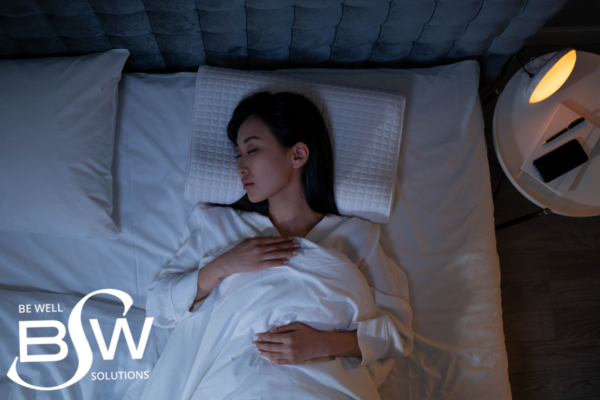Sleep influences almost every aspect of our health, yet we’re constantly searching for ways to get enough restful sleep. Our environment and habits affect the amount and quality of daily sleep we get. Sleep hygiene is a buzzword that is gaining traction among wellness terms. Let’s look at what it is, its benefits, and how we can practice it for a good night of rest.
What is it?
According to the Sleep Foundation, “Strong sleep hygiene means having both a bedroom environment and daily routines that promote consistent, uninterrupted sleep.” It involves preparing ourselves and our space for a restful sleep.
What are the benefits?
When we create good sleep habits, we can get more quality sleep. Our bodies need adequate sleep for better health. It can boost our immune system, help with weight management, and even lower the risk of conditions like heart disease. When we get enough shut-eye, we have more energy to be productive and focused. It even helps improve mood and decrease anxious feelings (Headspace). Good sleep benefits us both physically and mentally.
5 Ways to Practice Good Sleep Hygiene
Create a Routine. Prepare your mind and body for restful sleep by establishing a bedtime routine. Start around the same time each evening and choose relaxing activities. Things like listening to calming music, reading a book, stretching, meditation, or praying are all soothing options to include in a bedtime routine. Preparing yourself for sleep can make it easier to fall asleep and stay asleep.
Turn Off Electronics. Avoid screen time on phones, televisions, laptops, and tablets for thirty to sixty minutes before bed. Screens can keep your brain engaged, making it harder to fall asleep and reach a restful REM sleep. Blue light from electronics is a common sleep disruptor. According to The Cleveland Clinic, “Research has found a correlation between suppressed levels of melatonin and exposure to blue light. Melatonin is a hormone responsible for controlling your sleep-wake cycle. When your body runs low on it, you can experience insomnia, tiredness during the day, and irritability.” Mindless scrolling on our phones can also cause positive and negative emotions that keep our minds engaged and awake.
Create a Sleep-Friendly Environment. Tailor your bedroom to fit your sleeping needs. Choose a comfortable temperature that will keep you from tossing and turning. Keep light and noise at a minimum. Sleep more snugly by finding a mattress and pillow that is comfortable.
Rethink Your Evening Drinks and Snacks. What you eat or drink before bed can directly affect your rest. While alcohol might help you fall asleep or feel more relaxed, it interferes with your sleep cycles and can leave you restless. Limit caffeine intake later in the day. Be aware of foods that disrupt sleep, such as a large meal or spicy items before bedtime that may cause indigestion or heartburn.
Exercise Regularly. Exercise benefits many areas of health, including sleep. Research has shown that regular exercise can help lower the time it takes to fall asleep (Sleep Foundation). It can also be a stress reliever that helps clear your mind and prepare it for rest. Choose a workout time during the day that works best for you. Some may find that activity right before bed tends to keep them awake. If that is the case, plan to exercise at least several hours before bedtime.
Give these sleep hygiene tips a try for more restful sleep that will leave you energized and ready to tackle your goals tomorrow. Sleep Well!
Continue Reading September 2023 Newsletter: 8 Tips for Exercising Safely

